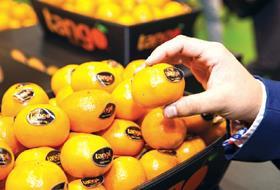
The commercialisation of the Tango mandarin in South Africa has received a major boost to move full steam ahead following the granting of plant breeders rights to the University of California Riverside (UCR).
The granting of the rights to UCR for Tango was confirmed by the South Africa’s Registrar of Plant Breeders Rights.
Significant plantings of Tango has already taken place and it is expected that volumes of the cultivar will increase rapidly from next year.
The resolution of the plant breeders’ rights brings to a close a long battle for the rights to the variety. Tango was developed by UCR through the irradiation of a WMurcott bud, and an application was launched to patent the new variety as Tango in September 2005, before being granted in July 2007 as plant patent number 17,863.
The rights were contested in South Africa on the grounds that Tango was alleged to be an essentially derived variety from WMurcott, which is also known as Nardorcott.
While this was all taking place, the issue of plant breeders’ rights for Nadorcott in South Africa also became a hot potato, with an application to the Registrar to have them scrapped. At the time of writing the Registrar still has to announce her final decision on whether the existing rights should be lifted.
This will be an important decision for Tango too, because without plant breeders’ rights for Nardorcott in South Africa, the claims of Tango being an essentially derived cultivar will have no substance and all further challenges will disappear.
The present plant breeders’ rights for Nardorcott were granted in 2004 but was challenged three years ago by an Eastern Cape citrus grower, Mark Hume, who asked the Registrar to declare them invalid. The validity of the rights are defended by the Nadorcott Protection (NCP) as well as Citrogold, a South African cultivar management company.
In South Africa, at least, the plant breeders’ rights of Tango is now secured and the industry will have a greater choice of mandarins to plant. Indeed, late mandarins is one sector of the citrus industry which has shown considerable growth in recent years.
The exciting news is that in the first two phases of the planting programme for Tango, some 2,000 hectares have been established. The first fruit will be exported this year and volumes will dramatically increase from next year onwards.
Three South African exporters have been appointed to market the fruit. They are AMC, which is expected to handle the fruit from about 50 per cent of the orchards planted to date, Stargrow Marketing and FruitOne.






No comments yet